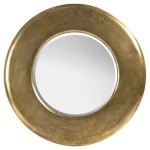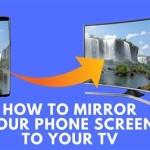How to Screen Mirror Android to Vizio TV Without Wi-Fi
Screen mirroring an Android device to a Vizio TV without Wi-Fi offers flexibility for situations where a wireless network is unavailable or unstable. Several methods facilitate this connection, utilizing wired connections or creating local hotspots. This article outlines the most effective techniques.
Using USB-C to HDMI Adapter
Many modern Android devices support video output via USB-C. This method offers a direct, stable connection.
- Ensure the Android device has a USB-C port that supports video output (DisplayPort Alt Mode).
- Acquire a USB-C to HDMI adapter. Ensure compatibility with the specific Android device.
- Connect the USB-C end of the adapter to the Android device.
- Connect the HDMI end of the adapter to an available HDMI port on the Vizio TV.
- Using the TV remote, select the correct HDMI input source corresponding to the adapter's connection.
- The Android device's screen should now be mirrored on the Vizio TV.
Utilizing a Portable Hotspot
Creating a portable hotspot from another device allows wireless screen mirroring without relying on an external Wi-Fi network. This is helpful in locations with limited internet access.
- Enable the hotspot feature on a secondary device (another smartphone, tablet, or laptop). Refer to the device's instructions for specific steps.
- Configure a secure password for the hotspot network.
- On the Android device, navigate to the Wi-Fi settings.
- Connect to the newly created hotspot network using the configured password.
- Once connected, utilize the Android device's built-in screen mirroring feature (often called "Cast" or "Smart View"). The specific name may vary based on the Android version and manufacturer.
- Select the Vizio TV from the list of available devices.
Connecting Through a Wired Network with Third-Party Apps
While directly mirroring without any network connection is often preferred for its simplicity, employing third-party apps along with a wired network connection allows for extended functionality and control. This requires both the Android device and the Vizio SmartCast TV to be connected to the same wired network.
- Connect both the Android device and Vizio TV to the same router via Ethernet cables.
- Download and install a compatible screen mirroring app on the Android device. Research reputable apps specifically designed for this purpose. Check user reviews and ratings before installation.
- Ensure the Vizio TV is also running any necessary applications/plugins that the mirroring app requires.
- Launch the mirroring app on the Android device.
- Follow the app's instructions to select the Vizio TV and initiate the mirroring process.
Using Micro HDMI to HDMI Cable (Older Devices)
Older Android devices may feature a Micro HDMI port. This method provides a direct connection similar to the USB-C method.
- Confirm the Android device possesses a Micro HDMI port.
- Obtain a Micro HDMI to HDMI cable.
- Connect the Micro HDMI end to the Android device.
- Connect the HDMI end to an available HDMI port on the Vizio TV.
- Select the appropriate HDMI input source on the Vizio TV using the remote control.
Troubleshooting Common Issues
Sometimes, connection problems may arise. Here are some troubleshooting tips:
- Check Cable Connections: Ensure all cables are securely plugged into both the Android device and the Vizio TV. Try different cables if available.
- Restart Devices: Power cycle both the Android device and the Vizio TV. This can resolve temporary software glitches.
- Update Software: Verify both the Android device and the Vizio TV are running the latest software updates. Outdated software can sometimes cause compatibility issues.
- Check HDCP Compatibility: High-bandwidth Digital Content Protection (HDCP) can sometimes interfere with mirroring. Consult the documentation for both devices to ensure HDCP compatibility.
Optimizing Mirroring Performance
For smoother mirroring, consider the following optimizations:
- Reduce Network Traffic: If using a hotspot or wired LAN, minimize other network activity to improve mirroring bandwidth.
- Close Unnecessary Apps: On the Android device, close background apps that are not required for mirroring. This frees up system resources.
- Adjust Screen Resolution: Some mirroring methods allow adjusting the resolution. Lowering the resolution can improve performance, especially on less powerful devices.
Choosing the Right Method
The optimal method depends on the available hardware and specific needs. Direct connections (USB-C to HDMI or Micro HDMI to HDMI) generally offer the most stable and lowest latency experience. Hotspot mirroring provides flexibility when a dedicated Wi-Fi network isn't available. Third-party apps and wired LAN connections provide additional features but may require more setup and configuration.

How To Connect Phone Tv Without Wi Fi Techwiser

Top 3 Methods To Mirror Iphone Vizio Tv

How To Cast Screen Mirror Android Phone Vizio Tv D Series Chromecast

How To Mirror Android Phone Tv Without Wifi Easy Steps

Top 3 Methods To Mirror Iphone Vizio Tv

How To Connect Phone Tv Without Wifi

How To Cast Any Smart Tv Without Wifi Airdroid

How To Cast Any Smart Tv Without Wifi Airdroid

Vizio Smart Tv How To Wireless Screen Mirror Galaxy S8 S9 S10 S20 Phones

How To Mirror Android Phone Tv Without Wifi Easy Steps








